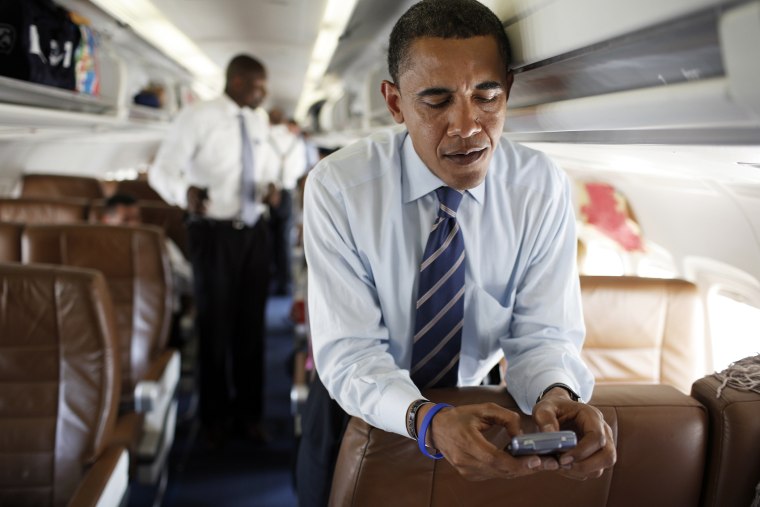Imagine your cell phone alerts you to a text message ... and it's from the president!
That may soon become a reality, if the Federal Communication Commission implements a plan proposed Tuesday to give the president the ability to communicate with the country in emergencies through phones and other emergency alert systems.
The proposal suggests shoring up a number of technological problems with the existing systems, typically used by local authorities in cases of extreme weather, so that the president or the Federal Emergency Management Agency can quickly and effectively communicate with the country. The proposal also seeks to expand the alert system to include wireless technology—like the cell phone you may be reading this on—so that you may indeed start receiving emergency messages from the president.
The public will have 30 days to respond to the proposal from the date of publication on the FCC website and in the Federal Register.
The "proposed changes are essential for the [Emergency Alert System] to function properly and thus share the common benefit of saving human lives, reducing injuries, mitigating property damage, and minimizing the disruption of our national economy," the report notes.
The changes would cost $7 million and $13.6 million, but the FCC writes that "we believe that the significant public safety benefit of the rules we propose today far outweighs the costs associated with those rules."
The proposed changes are largely derived from some of the problems encountered during a 2011 test of nationally-implemented emergency alerts, but also seek to modernize the alert system to include wireless devices. Emergency alerts on cell phones first deployed in April of 2012, plastering weather warnings across mobile users’ screens, accompanied by a loud tone.
You can opt out of these Emergency Alerts on your phone, but their pervasive nature—try ignoring an alert when everyone else in the office or grocery store is receiving one—makes them a powerful communication tool. To wit, one recent 4 a.m. New York City Amber alert woke up millions overnight.
At a more local level, governors or mayors could eventually use the system to contact their constituents too in the case of an emergency.
Following approval, the plan could be implemented early next year.
